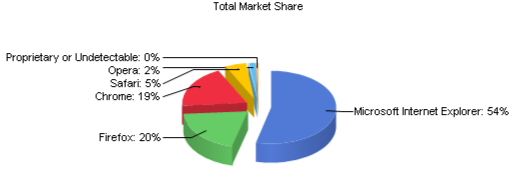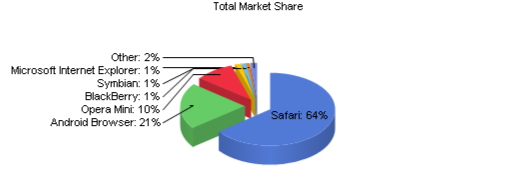Browser, Get Ready for the Smaller Screen!

Just like in physics, where events unfolding before our eyes in the real world don’t seem to bear much correlation to what’s happening at the quantum or microscopic level, such is the situation in web browser usage when comparing desktops to mobile devices.
Using NetMarketShare as the source for Internet statistics we see the interesting interplay between browser-share across devices. Two very different outcomes are apparent.
DESKTOP
At the desktop level Internet Explorer is the dominant browser capturing at least 54% of the market. Firefox and Chrome virtually tie for second place.

MOBILE
On the mobile front, Safari takes a whopping 67% of the browser market share with Google Chrome for Android appearing in the second position, alone, with a healthy 20%.

THE RISE OF MOBILE
Cisco reports in a recent Visual Network Index Whitepaper that
Mobile data traffic will reach the following milestones within the next five years:
- Monthly global mobile data traffic will surpass 10 exabytes in 2016.
- Over 100 million smartphone users will belong to the “gigabyte club” (over 1 GB per month) by 2012.
And, Cisco said, global mobile data traffic will increase 18-fold over the next five years.
“Mobile data traffic will grow at a compound annual growth rate (CAGR) of 78 percent from 2011 to 2016, reaching 10.8 exabytes per month by 2016,” said Cisco.
These trends illustrate the importance of designing websites on affordable web hosting platforms for mobile users as well as desktop users.
